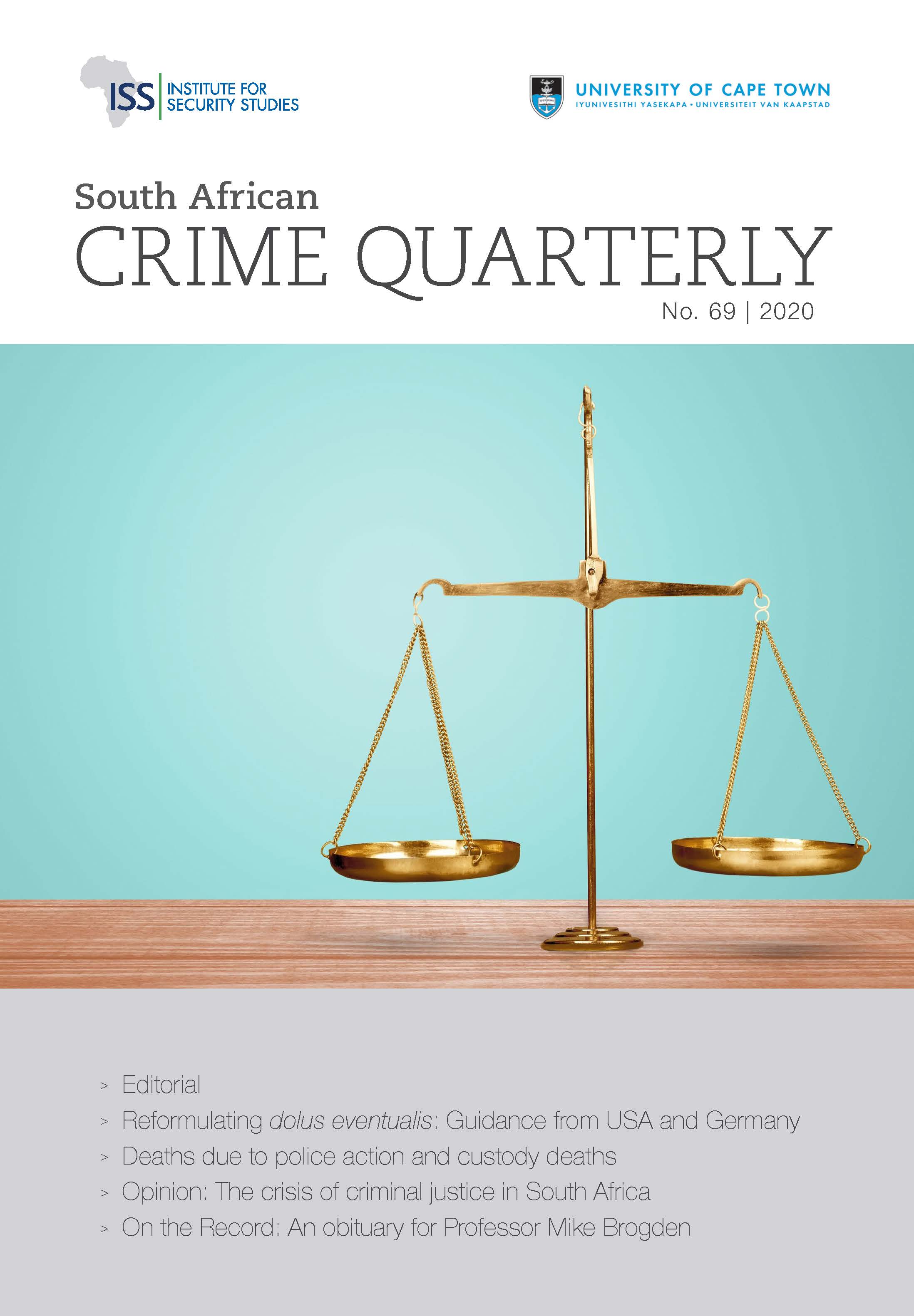On the record - Interview with Shaun Shelly, Researcher at the University of Pretoria and the Policy, Advocacy and Human Rights lead at TB HIV Care, South Africa
Interview with Shaun Shelly, Researcher at the University of Pretoria and the Policy, Advocacy and Human Rights lead at TB HIV Care, South Africa
DOI:
https://doi.org/10.17159/2413-3108/2020/i69a9309Abstract
In November 2020 Anine Kriegler interviewed Shaun Shelly about recent developments in South African Drug Policy in the wake of the 2018 Constitutional Court judgment decriminalising personal possession of cannabis, and the subsequent Cannabis for Private Purposes Bill. Shaun is a researcher at the University of Pretoria Department of Family Medicine where he is part of the team implementing a community oriented primary care approach to address drug use in the City of Tshwane. He is the founder of the South African Drug Policy Week and is the drug policy lead at TB HIV Care, a non-profit organisation that works to prevent, find, and treat TB, HIV, and other major diseases by targeting interventions to address the needs of populations at risk, such as inmates, sex workers, and people who inject drugs. Shaun is a founding member and chair of the South African Network of People Who Use Drugs and the former Deputy Secretary of the United Nations Vienna NGO Committee on Narcotic Drugs. He sits on various other national and international task teams and advisory boards on drugs.
Anine is a board member of the South African Drug Policy Initiative, a voluntary association that aims to reform South African drug laws, and which submitted an objection to the Bill.
Downloads
Downloads
Published
Issue
Section
License
Copyright (c) 2021 Author and Institute for Security Studies

This work is licensed under a Creative Commons Attribution 4.0 International License.
SACQ is licenced under a creative commons licence (CC BY) that allows others to distribute, remix, tweak, and build upon your work, even commercially, as long a they give appropriate credit, provide a link to the license, and indicate if changes were made. They may do so in any reasonable manner, but not in any way that suggests the licensor endorses you or your use.
Copyright for articles published is vested equally between the author/s, the Institute for Security Studies and the Centre of Criminology (UCT).




.png)